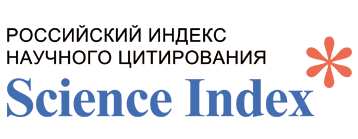THE ESSENCE OF CREATIVITY IN TEACHING FOREIGN LANGUAGE
DOI:
https://doi.org/10.59102/kufil/2022/iss1art11Аннотация
The development of creative thinking is one of the most important tasks in the modern world. The striving to realize oneself, to show one's capabilities is the guiding principle that manifests itself in all forms of human life – the desire for development, expansion, improvement, maturity, the tendency to express and manifest all the abilities of the body. The aim of this study is determined by the research of creative abilities' development problem in modern science from the point of Kazakhstani, Russian, and foreign scholars. The history and current state of the problem of creativity development and the essence and structure of creativity are studied on the basis of a wide range of scientific sources. Interpretations of creative abilities of researchers from different countries are proposed and substantiated. The authors carry out a critical analysis of the components of creative abilities.
Ключевые слова:
creativity, education, creation, creative abilities, creative competence, creative abilities componentsБиблиографические ссылки
Morozov, A.V. (2004) Creative pedagogy and psychology: study guide. 2nd ed. Moscow: Akademicheskiy proekt.
Ilyin, E.P. (2009) Psychology of creativity, creative thinking, giftedness. St. Petersburg: Piter.
Guilford, J.P. (1967) Intellectual Factors in Productive Thinking. In: Mooney, R.L. and Razik, T.A. (eds.) Exploration in Creativity. New York: Harper and Row.
Taylor, C.W. Various approaches to and definitions of creativity. In: Sternberg, R. and Tardif, T. (eds.) The nature of creativity. Cambridge: Cambridge University Press, pp. 99–126.
Torrance, E.P. (2012) Torrance Tests of Creative Thinking. University of Warwick: Scholastic Testing Service, Inc. Course Specifications: Glossary of Terms relating to Course Specifications. Available at: http: //www2.warwick.ac.uk/services/aro/dar/quality/coursespecs/view/glossary/
Zinchenko, V.P. and Meshcheryakova, B.G. (eds.) (1999) Psychological dictionary. 2nd ed. Moscow: Pedagogika.
Ermolaeva-Tomina, L.B. (1977) Experience of experimental study of creative abilities. Voprosy psikhologii, 4, pp. 43–48.
Sannikova, A.I. (2001) Formation of students' readiness for the development of creative potential in the educational process: textbook. Perm: Perm State Pedagogical University.
Barysheva, T.A. (2006) Psychological and pedagogical foundations for the development of creativity. St. Petersburg: Piter.
Bryakova, I.Ya. (2010) Methodological system for the formation of creative competence of philology students of a pedagogical university. Pedagogy Cand. Diss. St. Petersburg.
Solovieva, O.V. and Khalilova, L.A. (2010) Creativity in the structure of pedagogical thinking of future teachers of higher education. Applied Psychology and Psychoanalysis, 2.
Bono, E. (2012) Courses in the development of thinking. Minsk: Potpourri LLC.
Didenko, O. (2021) Formation and development of professional creativity of future officers in higher military educational institutions. Editorial Authors and Associated Researchers, 7, pp. 141– 152.
Uzakbaeva, S., Baimukhanbetov, B. and Berkimbaev, K. (2013) To the problem of forming creative competence of future teachers. Scientific Research, 4(3), pp. 234–240.
Dermanova, I.B. and Krylov, M.A. (2004) Creativity, personal characteristics and coping strategies of senior schoolchildren. Ananiev readings. Conference Proceedings. St. Petersburg, pp. 384–386.
Опубликован
Как цитировать
Выпуск
Раздел
Лицензия
Copyright (c) 2022 Bulletin of Shokan Ualikhanov Kokshetau University Philological Series

Это произведение доступно по лицензии Creative Commons «Attribution-NonCommercial» («Атрибуция — Некоммерческое использование») 4.0 Всемирная.











